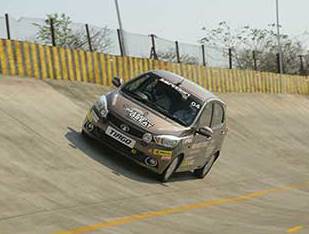Tata Motors plans to massively expand the use of EV technology in India in line with Government objectives.
At an event held last week at the Transport Catapult in Milton Keynes, I spoke to Tata Motors’ head of propulsion and innovation, David Hudson, about the company’s electrification plans.
Already active in the production of electric vehicles for commercial and public transport operators, the Indian motor manufacturer now has its eye set on the rapidly developing consumer market. Other car manufacturers are supplying EVs in the country and Tata is well placed to provide strong competition in a highly cost sensitive domestic market.
The Indian Government declared plans to move towards transport electrification across the country as far back as 2013 and is on track towards creating a robust infrastructure to support the large number of electric and hybrid vehicles being used there, a significant challenge in itself.
According to Hudson, the company’s European Technical Centre at the International Automotive Research Centre in Coventry has been engaged in solving the technical aspects of delivering a power train with an appropriate range, power and cost to meet the market expectations.
The result is the Tiago Hatchback, (see Concept of low cost EV with regenerative braking) a fully electric micro-mini vehicle that is able to compete head-on with such successful products as the Renault Zoe. Ideally designed for the busy streets of Mumbai and other large cities in the country, the commercial launch of the Tiago hatchback will see it become the Zoe of India, if Tata’s expectations come to fruition.
Tata Motors European Technical Centre will be at the Low Carbon Vehicle LCV 2017 event being held at Millbrook in September.
- UK manufacturing steps up to COVID-19 crisis - April 2, 2020
- Clustering Innovation - March 12, 2020
- A Global Monitor - March 6, 2020

